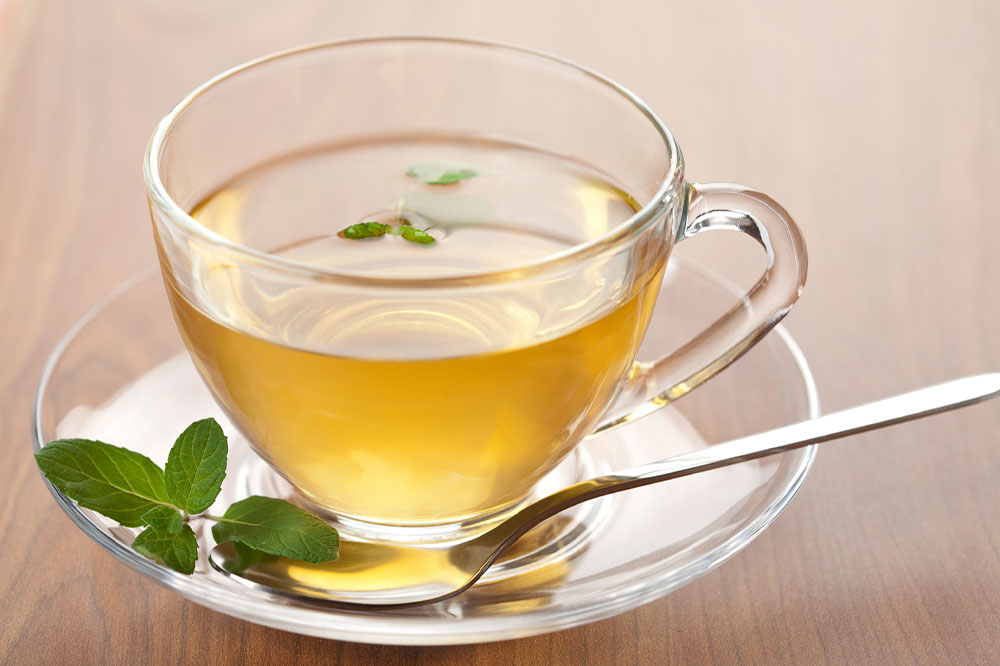8 Home Remedies to Manage Hyperhidrosis
The body uses sweat as a temperature regulator to cool down, but if one sweats more than usual, it could be a sign of hyperhidrosis. Someone with the condition might find it difficult to manage daily activities, especially since excessive sweating could lead to unpleasant odors and even stain clothes. There are a range of solutions to help deal with the condition, including some natural and home remedies.
Herbs
- Witch hazel can serve as an astringent and an antiperspirant. It helps dry out the skin and close pores to prevent excessive sweating. The herb could be applied directly to sweaty areas or combined with water to make a paste that one could let sit and rinse off after half an hour.

Apple cider vinegar (ACV)
This helps close pores and so aids with hyperhidrosis. It also removes bacteria usually found in sweat. Apply equal parts ACV and water to the affected area to reduce sweating. Use a cotton ball for easy application.
Cornstarch and baking soda
The duo are water-absorbing agents and moreover, baking soda may counteract bacteria commonly found in sweat, which is why one may usually find it on the active ingredients list in deodorants.
Green tea
Add sweat management to the long list of green tea’s benefits. It contains magnesium and vitamin B and can regulate the nervous system apart from calming one down and controlling sweating. Black tea may also contain similar health benefits to help with hyperhidrosis.
Tomato juice
While it may not seem like it, tomato juice may help shrink the pores and so can assist with excessive sweating. One could drink a glass of tomato juice every day or follow a meal regime rich in tomatoes for its benefits. Applying tomato juice to areas with excessive sweat, letting it sit for a few minutes, and then wiping it off could also help manage hyperhidrosis.
Potatoes
Rich in potassium, this vegetable helps push water out of the body. One could add potatoes to their meal regime or rub a slice across high sweat regions to tackle the effects of hyperhidrosis.
Try body salt scrubs
Epsom (a bath salt) is a management option recommended for those who sweat more than usual, especially in humid environments. Benefit from it by applying the salts to sweaty areas as soon as the sweating begins. The salt can absorb sweat without leaving any residual odor. One could also mix it with lemon juice to make a citrus scrub. One must apply it daily and wash it off in the shower or before bed for maximum benefit.
Use coconut oil
Oil derived from coconuts has multiple health benefits. Lauric acid in the oil has antimicrobial properties that could eliminate sweat-causing bacteria. Combine 10 grams of crushed camphor and 1 cup of coconut oil, and apply the paste to the body. Leave the mixture on the skin for about 45 minutes to an hour before rinsing it off with water. Applying cold-pressed coconut oil to the skin after showering can reduce excessive sweating.
Lifestyle changes
In addition to the remedies above, one could also make healthy lifestyle choices or changes to address hyperhidrosis.
Maintain hygiene
Simple changes like maintaining basic hygiene could go a long way in managing hyperhidrosis. Bacteria can thrive in moist environments so showering daily will help. Air dry for at least an hour after bathing and before putting on clothes to help manage excessive sweating.
Wear breathable materials
Lack of ventilation to the body is usually the reason behind unhealthy bacteria growth. Pick breathable materials like linen and cotton and opt for clothes that wick away moisture. Wearing breathable materials makes it easy for air to pass through them, which can keep one cool by improving sweat evaporation.
Regulate stress
The human body is said to accurately represent its mental state. Stress can cause the heart to beat faster, heat up the skin, and cause the sweat glands to open. Hyperhidrosis can make one sweat even more in stressful situations. Look for ways to manage stress through deep breathing techniques, yoga, and meditation to reduce excessive sweating.
Set healthcare appointments
If home remedies or home treatments for hyperhydrosis don’t seem very effective or aren’t giving quick enough results, set an appointment with a healthcare professional. A simple search for terms like “hyperhidrosis treatment near me” should render multiple results to pick from. A range of treatment options that may help manage excessive sweating may be suggested. Additionally, the expert may also diagnose the symptoms to assess if there are other underlying causes and offer relevant treatment options.

